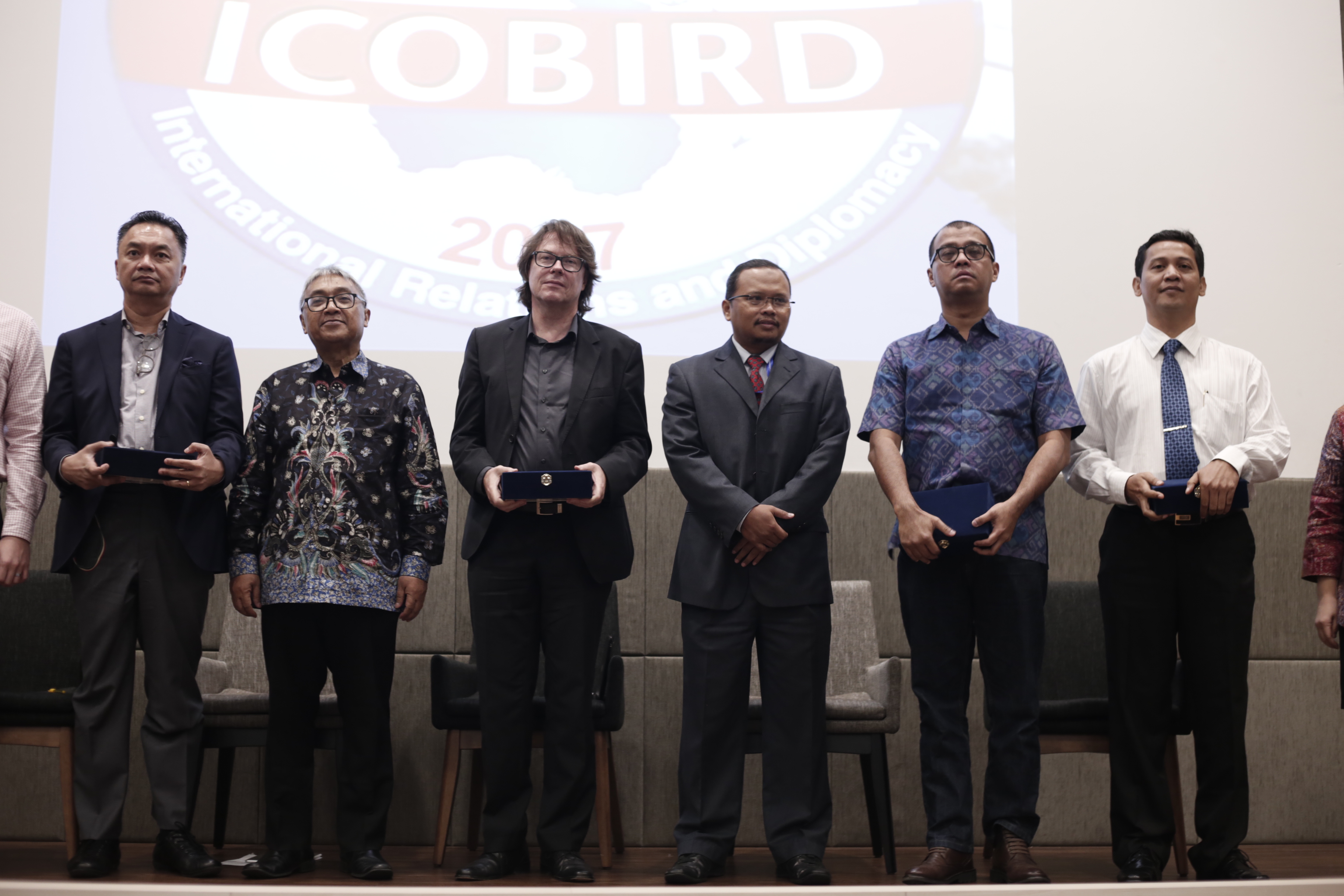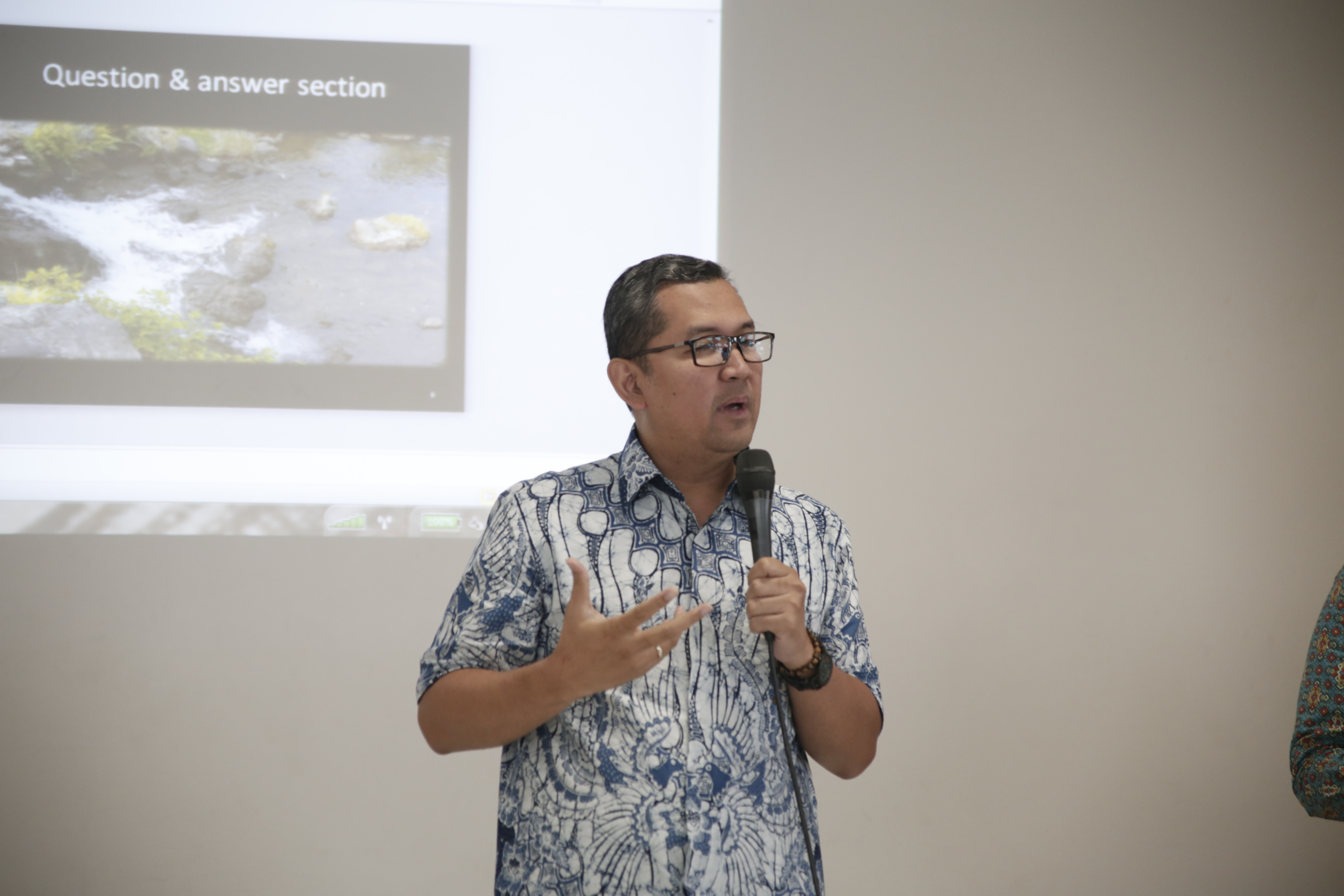About ICOBIRD 2017
- Activities
- Department Activities
- Faculty Member Activities
- Featured
- International Conference on Business, International Relations and Diplomacy 2017
- International Relation Lecture Series
- IR Lecture Series
- News
- slideshow
Business, International Relations, and Diplomacy in the Information Era
Information technology has revolutionized human interaction since the invention of the internet in the late 1980s, almost the same time with the end of the cold war when international relations began to take its new stage. In fact, it is information technology that became one of the key driving forces of globalization that characterizes much of international relations in the post-cold war era. Against this backdrop, the Department of International Relations of Binus University has organized the 6th International Conference on Business, International Relations, and Diplomacy (ICOBIRD) under the theme “Business, International Relations, and Diplomacy in the Information Era” on 2-3 November 2017 at Binus University Alam Sutera campus. This conference aimed to highlight the role of information technology, not only in driving globalization but also in shaping international relations in general.
The opening ceremony of the 6th ICOBIRD was held on 2 November 2017 morning. It was followed by a plenary session which invited Ambassador Dr. Dino Patti Djalal, former Indonesia’s Deputy Foreign Minister and founder of Foreign Policy Community of Indonesia (FPCI); Dr. Andi Widjajanto, main commissioner of PT Angkasa Pura I; Prof. Dr. Stefan Koos from Universität der Bundeswehr München; and Ir. Kun Arief Cahyantoro, M.B.A., from the Coordinating Ministry of Political, Legal, and Security Affairs.
The plenary session opened with Dr. Dino Patti Djalal as the first speaker. With experience as a former Indonesian Ambassador to the United States, he talked about how to attract the global market using diplomacy. The second speaker was Dr. Andi Widjajanto, who talked about the cyber security framework in Indonesia. He explained the cyber threat landscapes in Indonesia and the cyber security framework and institutionalization after the issuance of Presidential Regulation (Perpres) No. 53/2017 on State Cyber and Cryptography Agency (BSSN). The third speaker was Prof. Dr. Stefan Koos, whose expertise is on International Law. He talked about international law in the information era, including how International Business Law works in the current global market. Last but not least, Ir. Kun Arief Cahyantoro talked about e-commerce in Indonesia by exploring several aspects that affect e-commerce business. The plenary session was moderated by a faculty member of the Department of International Relations of Binus University, Dr. Lili Yulyadi.
The seminar was followed by four panel sessions. The first panel went by the theme “Business in Information Era” moderated by Dennyza Gabiella. In this panel, Muhammad Reza Syariffudin presented his paper entitled, “WTO and e-commerce in developing countries,” Waode Diah Anjani and Roseno Aji Affandi presented “E-commerce in Indonesia: Progress and future challenges,” Sukmawani Bela Pertiwi and Paramitaningrum presented “E-commerce and regional integration in Southeast Asia,” Galuh Dian Prama Dewi presented “Political economy of e-commerce and its impact on Indonesian market (case study of online shops growth in the 2000s),” and Roseno Aji Affandi, Aditya Permana, and Elisa Anastasia presented “Integrating business strategy and sustainability development of the society.”
The second panel went by the theme “Business in the Information Era (Focus on Indonesia)” moderated by Charanpal Singh Bal, Ph.D. In this panel, Amalia Sustikarini presented “E-commerce and Sustainable Development Goals: The role of online stores in promoting inclusive trading in Indonesia,” Respati Wulandari and Prof. Dr. Tirta N. Mursitama, Ph.D. presented “Application of strategic entrepreneurship approach in franchise and non-franchise business,” Mohammad OK Ikhsan presented “The pattern of Chinese Indonesian business in post-New Order’s regime: A political economy perspective,” and Yoes Koeswara presented “Tax me if you can: The political economy of Tax Amnesty program.”
The third panel went by theme “International Relations in the Information Era” moderated by Curie Maharani Savitri, Ph.D. In this panel, Dr. Lili Yulyadi presented “Revisiting development in developing countries in the era of Information and technology advancement,” Sukmawani Bela Pertiwi and Fauzia Gustaria Cempaka presented “A qualitative analysis on Indonesia’s cyber power,” and Tangguh Chairil presented “Cyber defense in Indonesia: Challenges to the capacity development.”
Another panel was under the theme “Diplomacy in the Information Era” moderated by Rangga Aditya. In this panel, Chiu Chung-Yu presented “The innovative platform of agricultural market and future in Taiwan comparing with the EU (the collaboration between government and market),” Luh Nyoman Ratih Wagiswari Kabinawa and Hardianto Gunawan presented “The political economy of Taiwan’s foreign investment: Case study Morotai development plan,” Tia Mariatul Kibtiah and Richa Yustikaningrum presented “Foreign policy of Saudi Arabia in Indonesia (case study: Saudi’s investment in Indonesia 2000-2007),” and Lakpani Dias presented “Trans-boundary implications of India and Nepal air pollution policy implementation and South Asian Association for Regional Cooperation.”
On 3 November 2017, ICOBIRD continued with two other panel sessions in the morning and a special International Relations Lecture Series (IRLS) in the afternoon. The fifth panel went by theme “Social Media and Social Issues in the Information Era” moderated by Sukmawani Bela Pertiwi. In this panel, Vidya Prahassacitta presented “Indonesia’s objective on anti-hate speech via social media towards democracy, Rangga Aditya and Anselma Faustina presented “Indonesian government effort to protect Indonesian overseas workers in Taiwan: An analysis of social media role,” Mutiara Indriani and Rangga Aditya presented “Development aid, partnership and cultural adaptation: Is the combination away forward?” and Aditya Permana presented “Democracy in the hand of Indonesian Moslem middle-class: How New Order’s Developmentalism shapes social capital and identity commodification of contemporary Indonesian Islam.”
The other panel was a special panel under the theme “Vectors of Public Diplomacy and Soft Power in Asia Pacific: Competing, Gaining Access and Expanding Influence” moderated by Paramitaningrum, Ph.D. In this panel, Enrico Cau presented “The Belt and Road Initiative and the role of Chinese soft power and public diplomacy in the ASEAN region: An analysis,” Idania Marcela Perigault presented “Soft power as a key element of China’s foreign policy in Latin America: The case of Panama,” Fabrizio Bozzato presented “China’s science diplomacy in the South China Sea: Cooperation or soft power conduit?” and Stefano Pelaggi presented “Taiwan development aid in South East Asia: From a diplomatic strategy for balancing the international isolation to a tool of soft power.”
After lunch break, ICOBIRD was followed by the special International Relations Lecture Series (IRLS) which invited Dr. Alan Chong, Associate Professor at S. Rajaratnam School of International Studies. He talked about social media, democracy, and human rights in Asia and inquired whether cyber-democratization is happening. Amalia Sustikarini, Ph.D. acted as moderator in this session. ICOBIRD was then officially closed after concluding remarks by Sukmawani Bela Pertiwi as the conference chairperson and Prof. Dr. Tirta N. Mursitama, Ph.D. as Head of the Department of International Relations of Binus University.










Comments :